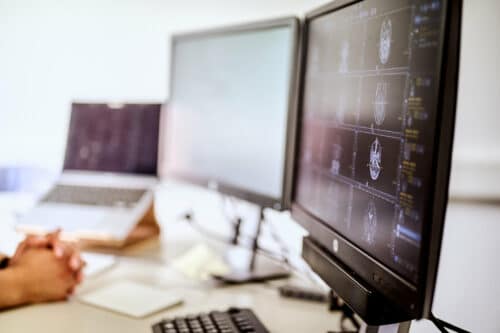Researchers from the Technical University of Munich have developed a new AI technology that is capable of learning the MRI images independently.

To overcome the real time challenge of time consumption, the researchers have developed an AI-based medical diagnostic algorithm specifically for MRI images. The newly developed algorithm was trained on more than 1,500 MRI scans of healthy participants. Then this algorithm was used to analyse more than 500 scans to detect various diseases. This new algorithm helps the medical industry by reducing the time taken for analysing the MRI reports. As these algorithms require a huge amount of data associated with radiology, the team took help from the doctors.
In the recent study by the researchers were able to show that the federated AI algorithm outperformed any AI algorithm trained with data from a single institution. Hence, the research team gathered MRI image data from different and independent medical institutions without violating the data privacy.
With the evolution of the healthcare industry, AI solutions are supporting doctors in diagnosis to a greater extent. However, such algorithms require an immense amount of data. The team has taken such effort to gather these data which will elevate the algorithm to the next level from the existing ones.
“Once this algorithm learns what MRI images of the healthy brain look like, it will be easier for it to detect disease. To achieve this requires intelligent computational aggregation and coordination between the participating institutes,” says Prof. Dr. Albarqouni. PD Dr. Benedikt Wiestler, senior physician at TUM’s University Hospital, adds that “training the model on data from different centres contributes significantly to the fact that our algorithm detects diseases much more robustly than other algorithms that are only trained with data from one centre.”
The researchers are working on improvising this algorithm by adding more data precise to various diseases and diagnoses similar to MRI images.






